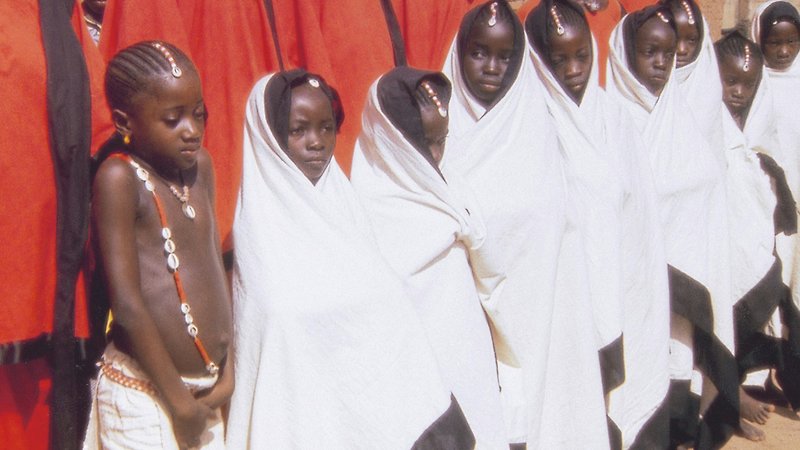In this stirring film by the 81-year-old father of African cinema, the defiant wife of an elder in a West African village refuses to allow four girls to undergo the traditional initation rite. “It makes a powerful statement and at the same time contains humor, charm and astonishing visual beauty.” — Roger Ebert

Screened as part of NZIFF 2005
Moolaadé 2004
“The second film in a trilogy celebrating African women, this is a masterwork by Ousmane Sembene, the 81-year-old father of African cinema and one of Senegal’s greatest novelists. It focuses on the defiant second wife of an elder in a West African village, who refuses to allow four little girls to undergo the traditional circumcision ceremony. Among Sembene’s strengths as a storyteller are his deceptive simplicity and apparent looseness, which allow his drama to steadily gather momentum and political force. His ambiguous, multilayered treatment of a flirtatious local merchant who partially represents the world outside the village is emblematic of his virtuosity.” — Jonathan Rosenbaum, Chicago Reader
“Moolaadé is the most powerful political film on the screen today. And its persuasiveness is rooted in the Senegalese filmmaker’s use of African folk-narrative traditions – conjuring up a great, rich hubbub as brilliant with color and characters as any drama on a less daunting subject… As the village is stirred by rebellion, Sembene allows each argument its dignity, presenting the challenge to change and adapt as an embrace rather than an admonition.” — Lisa Schwarzbaum, Entertainment Weekly
“At 81, having organized unions, written novels and directed a handful of immortal films, Mr Sembene surely has nothing left to prove, but Moolaadé may well be his autumnal masterpiece – a rousingly political film that is a critique of traditional forms of authority and a celebration of the warmth and dynamism of African village life.” — A.O. Scott, NY Times